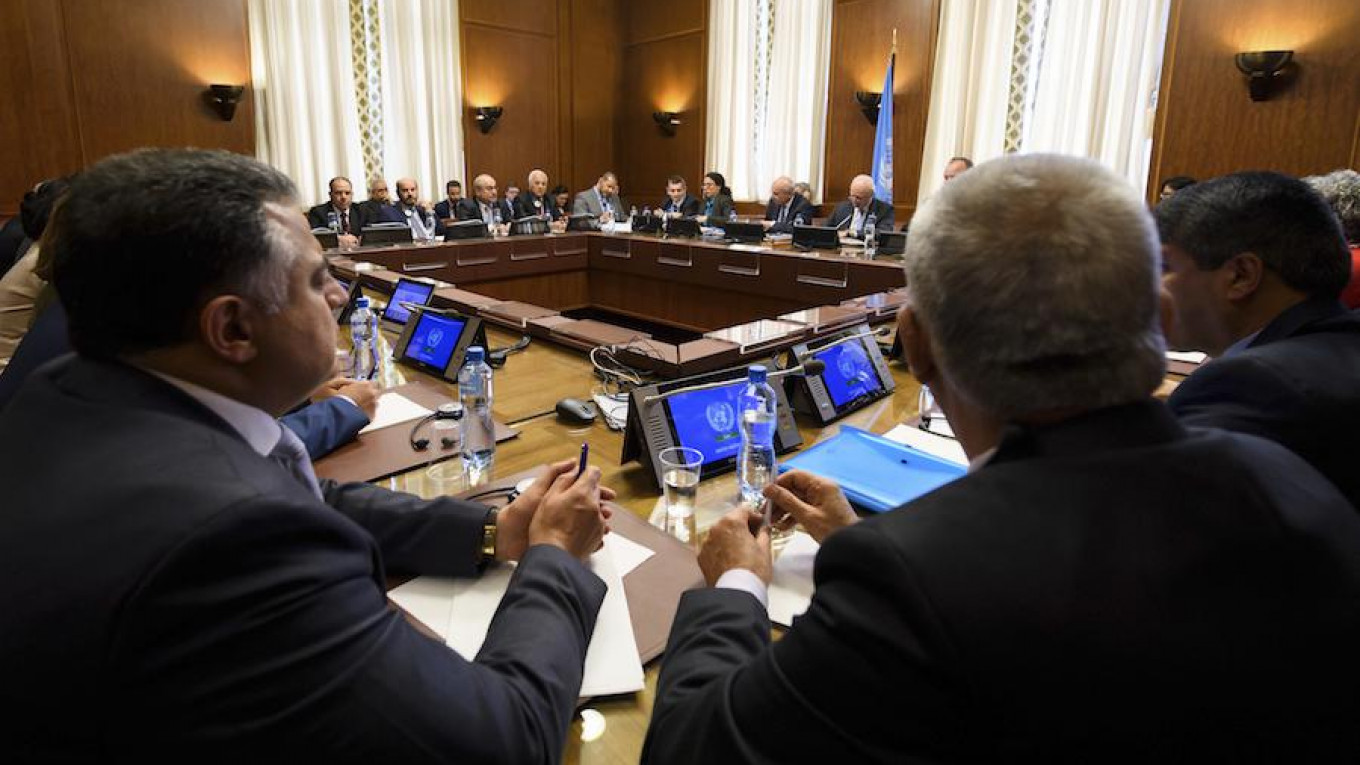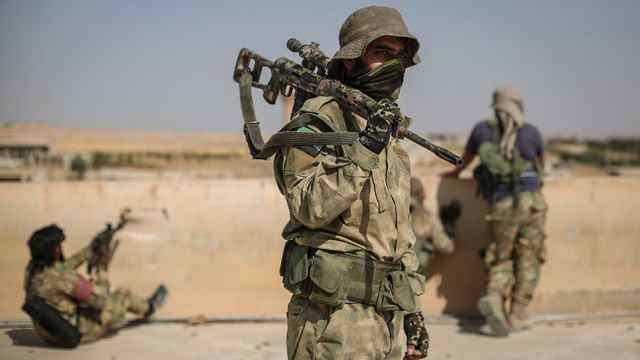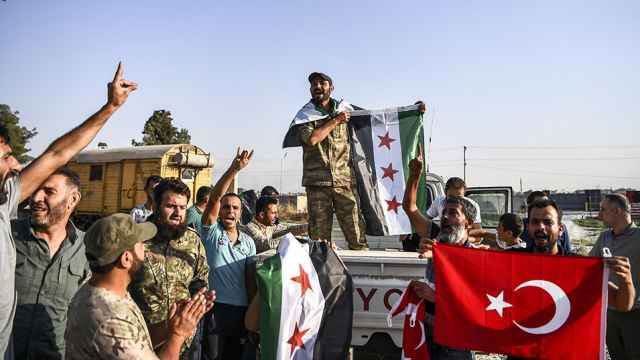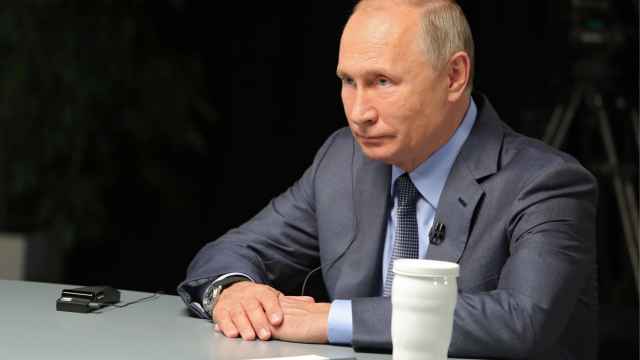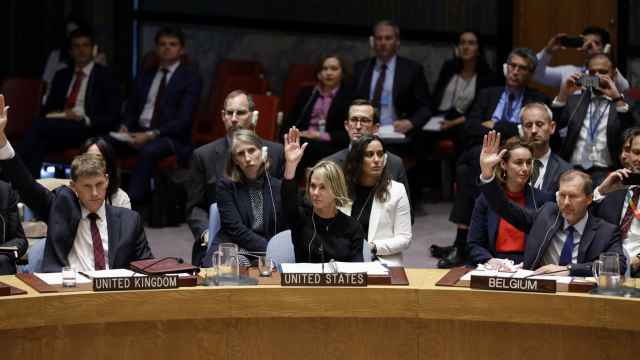A sixth round of UN-backed talks in Geneva this weekend failed to bring about a plan to end the conflict in Syria.
UN representative Staffan de Mistura said on Friday, May 19 that the four-day talks, which included the Syrian government and opposition groups, had only made “incremental progress,” adding that discussions had not covered topics they set out to.
With the continuing failure of the UN-sponsored talks, attention is turning again to the Russian-backed process based in the capital of Kazakhstan, Astana. Lead by allies Russia, Turkey and Iran, the Syrian government has thrown its weight behind the process.
This alternative process put forward a framework for “de-escalation zones” across the Western provinces of Syria. The plan calls for the creation of government sanctioned checkpoints, observation posts and humanitarian corridors into the four zones, currently controlled by the rebels.
But the plan is not without controversy.
Six years of conflict
The Syrian conflict, now in its sixth year, has cost upwards of 400,000 lives and created over five million refugees according to the UN. Multiple ceasefires over the past year have ended in more fighting.
Despite numerous attempts, there has been little progress securing a lasting settlement. No agreement was reached in UN-backed talks last February. Hoping to work around the Geneva deadlock, the United States and Russia negotiated their own ceasefire without UN involvement.
This February 2016 ceasefire reduced overall levels of violence in the country for a short time. That said, there were dozens of violations within days of signing the agreement.
Later, government forces began an advance towards the city of Aleppo. With a humanitarian catastrophe looming, a second ceasefire was brokered between the United States and Russia in September 2016.
This new ceasefire was designed to open safe paths from the city, and allow civilians to escape the battle.
The deal fell apart after Australian and other US-led warplanes bombed a Syrian government position in September. According to numerous media reports, Russian-backed Syrian air force responded to the incident by bombing a UN aid convoy.
Relations with the United States deeply soured after these events. Russia began looking for new partners, and found one in Turkey.
With their capture of a key border crossing in August, Turkey was preparing to dramatically ramp up its involvement in Syria. This new operation saw Turkey deploy military forces across northern Syria, making it a major power broker in the region.
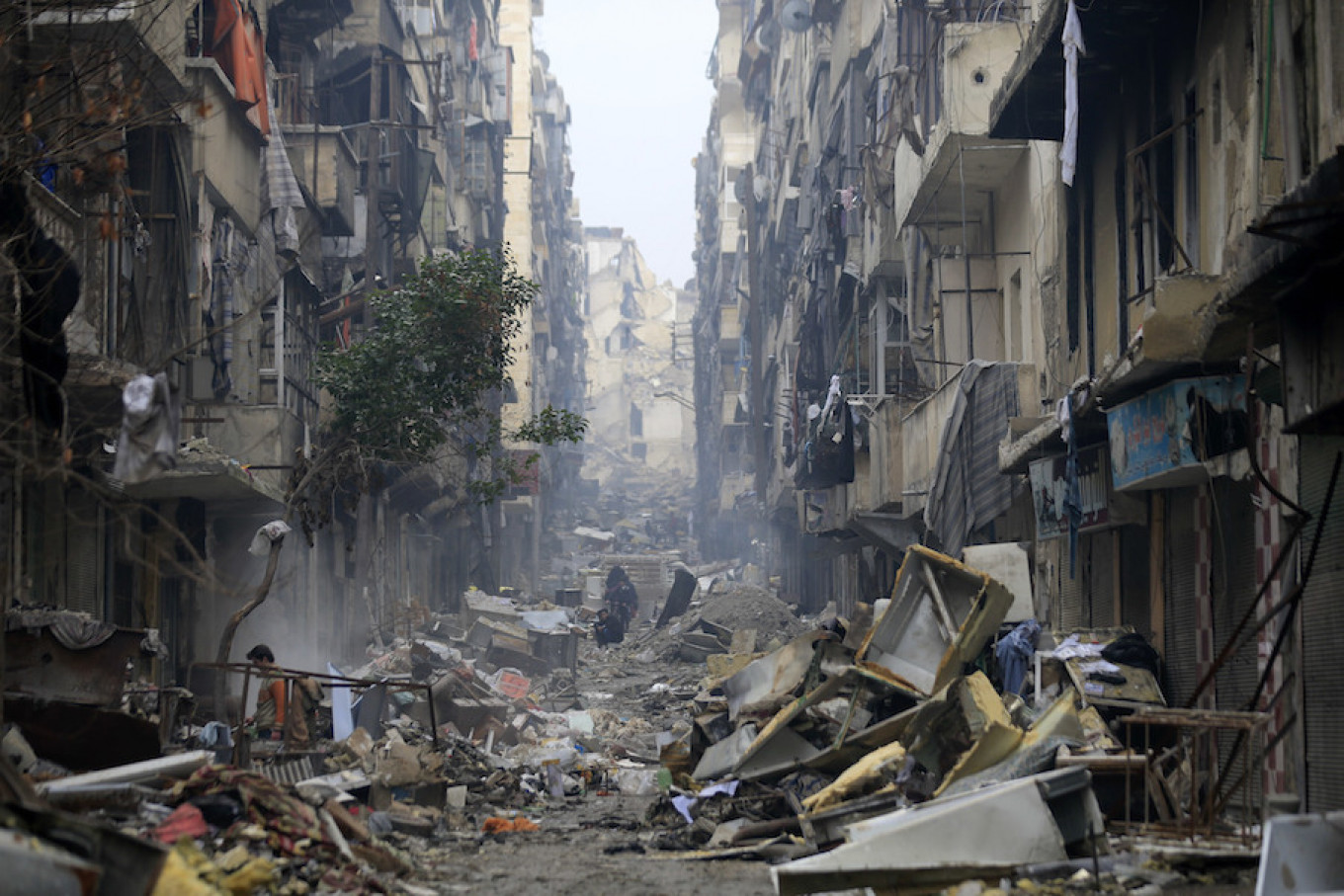
After the Syrian government’s bloody victory in Aleppo last winter, Russia began the current partnership with Turkey. In December 2016, Russia and Turkey enacted their own ceasefire from the Astana forum. This third ceasefire collapsed as well.
Keeping the Peace
The new plan for “de-escalation zones” hopes to succeed where earlier plans have failed. But it remains unclear how Syria’s kaleidoscopic array of local factions and militias will respond to third parties setting up security zones.
While countries working with Russia like Turkey and Iran have a degree of influence over some groups, smaller factions still demand their own autonomy.
“Without taking independent groups into consideration, these groups have little incentive in adhering to any ceasefire or peace plan,” said John Arterbury, a researcher focusing on militias fighting in the Syrian conflict.
“This is especially true of pro-regime militias who have disparate and sometimes competing chains of command and who continue to profit more off war than peace,” Arterbury added. He suggested Russia still has a way to go in perfecting the Astana plan.
Other analysts point out different shortcomings in Russia’s plans for “de-escalation zones.” In some cases, the proposed zones border territory controlled by al-Qaeda affiliates. After the announcement of the Astana plan, Hayat Tahrir al-Sham the al-Qaeda affiliate in Syria announced it would not respect the plan.
“[Astana] won't quickly lead to an actual ceasing of fire,” suggests Alexander Clarkson of King’s College London. “But by creating spheres of influence it provides the basis for policing.” he said.
For others, it could have a profound impact, but not in the way advertised. According to Charles Lister of the Middle East Institute, it could project Russia to a position of even greater control.
“[Astana] has the potential to see Russia acquire a stranglehold over the trajectory of the entire Syrian situation,” he said.
A Message from The Moscow Times:
Dear readers,
We are facing unprecedented challenges. Russia's Prosecutor General's Office has designated The Moscow Times as an "undesirable" organization, criminalizing our work and putting our staff at risk of prosecution. This follows our earlier unjust labeling as a "foreign agent."
These actions are direct attempts to silence independent journalism in Russia. The authorities claim our work "discredits the decisions of the Russian leadership." We see things differently: we strive to provide accurate, unbiased reporting on Russia.
We, the journalists of The Moscow Times, refuse to be silenced. But to continue our work, we need your help.
Your support, no matter how small, makes a world of difference. If you can, please support us monthly starting from just $2. It's quick to set up, and every contribution makes a significant impact.
By supporting The Moscow Times, you're defending open, independent journalism in the face of repression. Thank you for standing with us.
Remind me later.


